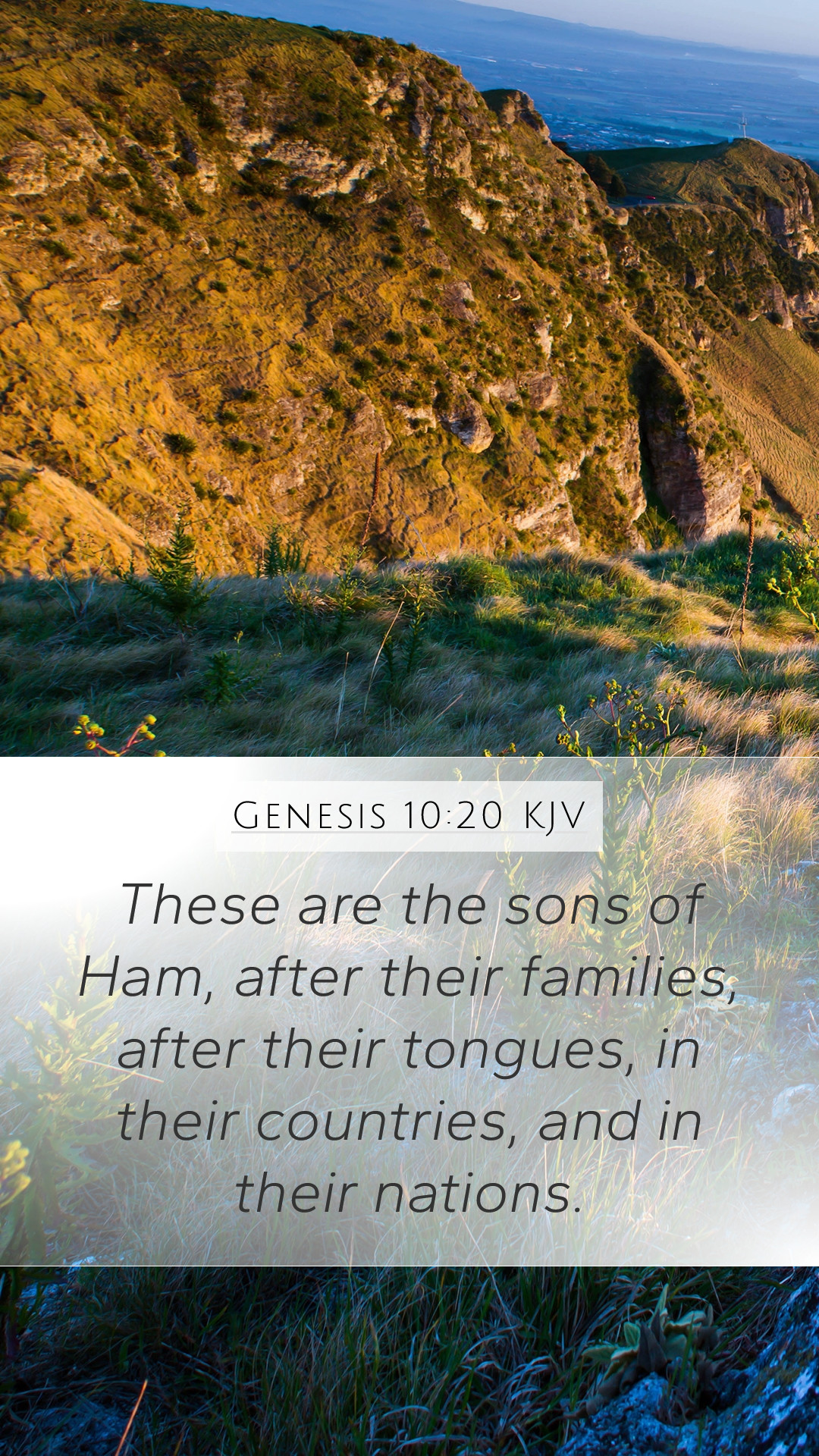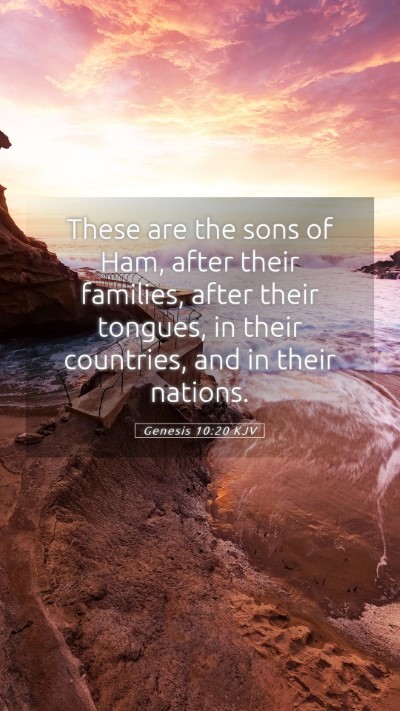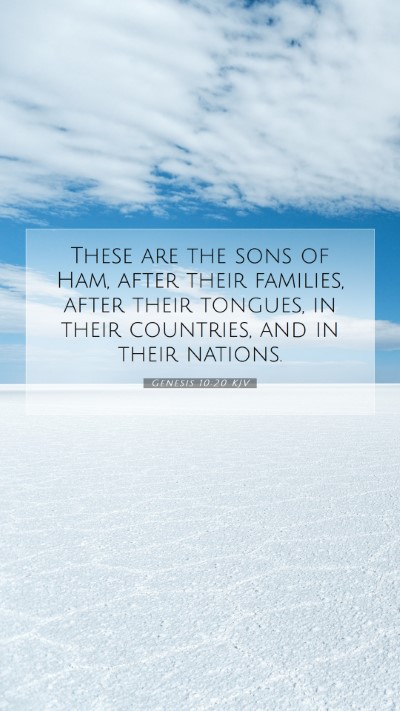Understanding Genesis 10:20
Genesis 10:20 states: "These are the sons of Ham, after their families, after their tongues, in their countries, and in their nations." This verse is part of the Table of Nations and serves to provide a genealogical record that links the descendants of Noah to various nations and peoples.
Overview of Genesis 10:20
This passage falls within a broader context, where the descendants of Noah's sons—Shem, Ham, and Japheth—are listed. Each line serves to show how the earth was populated after the flood, tracing family lines to specific ethnic groups and locations.
Commentary Insights
-
Matthew Henry's Commentary:
Henry emphasizes the importance of genealogies in Scripture, noting that they help establish historical identities. The mention of Ham's sons points to the geographic and cultural diversifications that resulted from Noah's family. Henry highlights that understanding these lineages can enrich the way we see God's diverse plan for humanity.
-
Albert Barnes' Notes:
Barnes explains that this verse illustrates how the nations were spread and how different languages and cultures emerged from the descendants of Ham. He asserts that this unfolding contributes to the larger narrative of human history and showcases God’s sovereignty in dispersing people across the earth.
-
Adam Clarke's Commentary:
Clarke reflects on the significance of Ham’s descendants, linking them to various regions and peoples, including notable ancient civilizations. He discusses the importance of their location in the context of biblical prophecy and implications for understanding subsequent events in the biblical narrative.
Significance of the Verse
The significance of Genesis 10:20 lies in its presentation of the diversity of nations and tongues that developed post-flood. This is crucial not only for historical context but also for understanding the Old Testament's journey toward the inclusion of all nations in God’s plan, as seen in later themes like redemption and salvation.
In-depth Analysis
Understanding this verse requires analyzing it within its historical context. Each nation mentioned represents distinct cultures and languages, reflecting the rich tapestry of humanity. The genealogical lists are not mere records; they serve a theological purpose that informs the reader about God's overarching plan and the complexities of human civilization.
Related Cross References
- Genesis 9:18 - Discusses Noah's sons and their roles post-flood.
- Genesis 11:1-9 - The Tower of Babel, illustrating the origins of languages.
- Acts 17:26 - Highlights God's sovereignty over nations and boundaries.
Application in Bible Study
For those engaged in Bible study groups or seeking Bible study tools, the examination of genealogies can offer rich bible study insights into the heritage of faith and the unfolding plan of God through human history. Understanding genealogies in Scripture aids in recognizing the broader narrative context when interpreting complex themes in Scripture analysis.
Conclusion
Genesis 10:20 serves as a pivotal reference in understanding the dispersion of nations post-flood. This verse's exploration offers valuable insights into the multicultural realities of humanity as presented in the Bible. In turn, engaging with such texts deepens one’s understanding of Scripture and enriches bible study lessons and discussions.
Need for Further Study
To gain a full appreciation of this verse, individuals are encouraged to pursue further study into the genealogies of the Bible, the implications of these families on historical narratives, and the fulfillment of God's plan throughout biblical history. For those looking to deepen their knowledge, exploring the historical context of these passages is essential in understanding difficult Bible passages and applying Bible verses to daily life.


